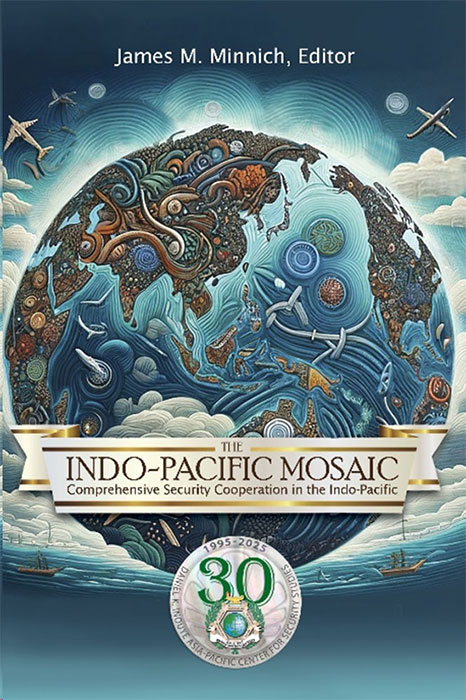Chapter Ten
Navigating Spatial Politics: The Compacts of Free Association and Oceania’s Geopolitical Landscape
Rachelle Rodriguez
Abstract
The Compacts of Free Association (COFA) are not merely legal agreements; they are instruments of spatial politics—the ways in which space is used to exert power and influence—that shape the geopolitical landscape of the Pacific. This chapter examines COFA between the United States and the Freely Associated States (FAS)— the Federated States of Micronesia, the Republic of the Marshall Islands, and the Republic of Palau—through the lens of spatialization, the intricate relationship between space and identity. By analyzing the historical and contemporary spatial narratives surrounding the Pacific region, the chapter reveals how COFA reflects and reinforces the spatialization of Oceania as a strategic arena, exposing power imbalances and divergent priorities. This analysis argues that a deeper understanding of spatial dynamics is crucial for reimagining a more equitable and sustainable partnership that prioritizes the environmental security, self-determination, and cultural preservation of Pacific Island communities. Ultimately, the chapter proposes recommendations for the 2043 COFA negotiations, advocating for revisions to foster a more just and equitable future for the region, grounded in the principles of spatial justice.






